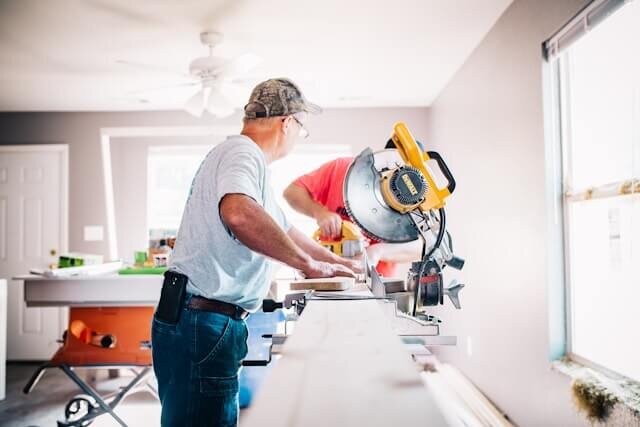
Selling your house often comes with a mix of excitement and stress. One of the biggest questions homeowners face during the process is whether they should invest in repairs before putting the property on the market. While some fixes may seem unnecessary, others could make the difference between a quick sale and months of waiting. Understanding which repairs are worth tackling and which can be skipped is key to making the most of your sale. Let’s explore the details so you can make an informed decision that benefits both your wallet and your timeline.
Selling Your House: Why Repairs Matter in Real Estate
First impressions are powerful in real estate. Buyers often make snap judgments the moment they walk into a home, and visible issues can lead them to believe the property has hidden problems. Repairs can improve the overall appeal of your home, boost its market value, and give buyers peace of mind. Even small updates, like a fresh coat of paint or fixing a leaky faucet, can have a positive impact on how the property is perceived.
Understanding Buyer Expectations
Buyers tend to look for a move-in-ready home, especially in a competitive market. While some buyers are comfortable with the idea of making renovations, many prefer a property that requires minimal work. If your house has glaring issues, such as broken windows or outdated systems, buyers may either lower their offer or walk away altogether. Addressing key repairs can align your home with what today’s buyers expect and make it easier to attract serious
offers.
Evaluating the Current Market
The decision to repair often depends on the state of the housing market. In a seller’s market, where demand outpaced supply, buyers may overlook minor flaws. However, in a buyer’s market, where inventory is plentiful, your property will need to stand out. Making thoughtful repairs could position your home more favorably and prevent it from being overshadowed by nearby listings in better condition.
Cosmetic vs. Structural Repairs
Not all repairs carry the same weight. Cosmetic updates, such as painting walls or replacing outdated hardware, are often inexpensive and provide a noticeable psychological boost in appeal. On the other hand, structural repairs—like fixing foundation issues, replacing a roof, or addressing plumbing problems—are more costly but often more critical. A home inspection will likely bring structural matters to light, so it’s usually best to address them in advance to avoid
deal-breaking negotiations later.
The Role of Home Inspections
Buyers almost always order a home inspection before finalizing a purchase. If significant problems show up in the report, it can give them leverage to renegotiate or walk away. Sellers
who proactively handle known issues often avoid last-minute surprises that could derail the sale.
Taking care of repairs upfront shows transparency and signals that the home has been well-maintained, which can build trust with potential buyers.

Cost-Benefit Analysis of Repairs
Before diving into repairs, consider the return on investment. Some improvements may not increase the sale price enough to justify the cost. For example, fully remodeling a kitchen might not yield the same return as updating appliances or replacing countertops. Think strategically about where your money will make the biggest difference. Consulting with a real estate agent can provide valuable insight into which repairs are most worthwhile in your local market.
Small Fixes That Make a Big Impact
Sometimes, it’s the little things that count. Replacing outdated light fixtures, fixing squeaky doors, re-caulking tubs, or improving landscaping can all create a better overall impression. These types of fixes typically don’t cost much but can help make the property look fresh and well-cared for. Buyers often notice these details, and addressing them can prevent unnecessary doubts about the home’s condition.
The Emotional Side of Repairs
Repairs aren’t just about money; they also come with an emotional component. Letting go of a home you’ve lived in for years can be bittersweet, and putting effort into fixing it up may feel overwhelming. However, taking care of necessary repairs often helps you transition more smoothly to the next chapter. Whether you’re downsizing or moving to a new home, addressing repairs before selling can give you peace of mind.
When Major Repairs Are Necessary
There are situations where major repairs can’t be avoided. If the roof is leaking or the furnace is on its last leg, most buyers will be hesitant to proceed without adjustments. You can either fix these issues in advance or be prepared to lower your asking price to account for them. While doing the work upfront requires investment, it can often lead to a smoother, faster sale at a better price.

Selling As-Is
Some homeowners prefer to sell their property “as-is,” meaning no repairs will be made. This
option can be appealing if you want to avoid the time, expense, and stress of renovations.
However, selling as-is usually limits your buyer pool to investors, flippers, or those looking for a
bargain. You may also need to lower your asking price significantly to reflect the additional work
buyers will need to take on.
How to Decide What’s Right for You
The best decision depends on your personal circumstances, financial situation, and timeline. If you need to sell quickly, focusing on quick fixes and pricing the home accordingly may be the best approach. If you have more time and resources, investing in both cosmetic and structural repairs could yield a higher sale price and attract more buyers. A conversation with your real estate agent can help you prioritize repairs and weigh the options.
Updates That Benefit the Sale
The question of whether to make repairs before selling your house doesn’t have a one-size-fits-all answer. In many cases, small improvements can pay off by making your home more appealing and avoiding last-minute complications. For larger repairs, the decision often comes down to balancing cost, time, and the expectations of potential buyers. Ultimately, being strategic about repairs can help you sell more quickly and confidently. As you prepare for the next stage of your journey, consider which updates will not only benefit the sale but also make your transition to moving to a new home smoother and less stressful.
- Your Cash Home Sale Questions Answered
- Why Some Sellers Choose Fst Closing Over Traditional Listings
- The Dangers of Hoarding—and When to Intervene
- Tips For Managing a Home Sale While You’re Relocating Fast
- 9 Things to Do When You Inherit a Distressed Property
